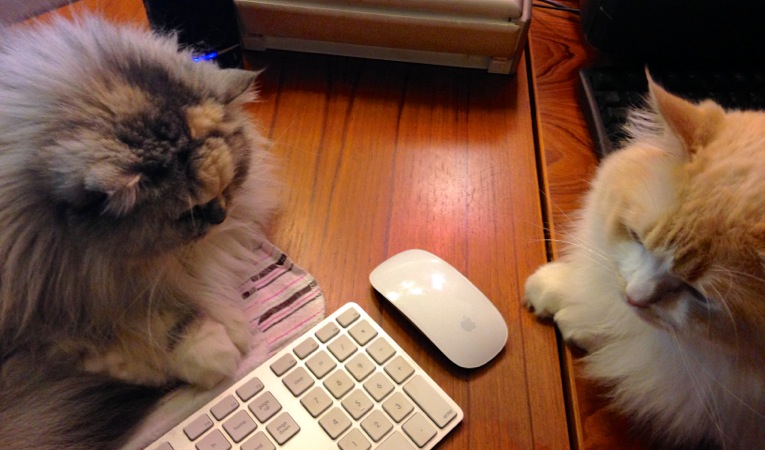The other day I was in a group where someone asked this:
“How do you experience and nurture empathy? What is one thing you can do today to empathize with someone you cross paths with today?”

I feel your desire to play with the mouse.
One thought, I said, is to imagine yourself in another’s shoes—without judgment—even when those shoes don’t fit. For example, if you see a man sleeping on the sidewalk, with all his belongings arranged around him, imagine what that would that be like. For some, the thought would be, “Why doesn’t he get a job?” or “He must be drunk.” or “What a bum.”
In reality, all we know is that he is sleeping on the hard, cold ground, in public. When he wakes up, he’s likely to feel disoriented, uncomfortable, fearful, hungry, maybe ashamed. He might be looking for the next drink, sure. Or a meal, or a shower. He might have thoughts and feelings that are foreign to us, like voices in his head.
Empathy, the ability to imagine oneself in another’s place and understand the other’s feelings, desires, ideas, and actions.~Encyclopedia Britannica
For all we know, our sleeping man had a series of misfortunes that left him unable to navigate his life. He might be a vet with PTSD or other injuries. So instead of dismissing him with a judgment, we remember that, like each of us, he has his own feelings and aspirations. We can relate to feeling cold or sick or not quite our best selves. And remembering that our own life experience is not the same, and that whatever story we imagine about this person may not be adequate or accurate, we do our best to understand rather than to judge.
With practice, this becomes a habit, and we can also extend it to the person in a meeting who disagrees with us or the store clerk who isn’t perfectly polite today.
For so many positions at work: As coworkers, leaders, team members, designers, teachers, trainers, or coaches, a little empathy can help us to…
- Be open to learning something new
- See more of the whole picture
- Avoid blunders based on quick judgments
- See another’s point of view
- Break down barriers and open doors
- Teach, coach, and lead from a more realistic starting point
- Be a better friend
- Enjoy working with others more
- Get to know our family, friends, coworkers, and ourselves better
This is not to say that we don’t practice discernment when someone does something that hurts someone else or goes against grain in a big way. Of course we still do that. We still disagree. We still set boundaries.
At the same time, we can develop a habit of practicing empathy for others. And, we can even extend more understanding to ourselves when we make mistakes or say something we wish we could take back.
Resources
Post | Why Humble, Empathic Business Leaders Are More Successful
Post | Why Empathy Is the Force That Moves Business Forward
Post | Efforts to Instill Empathy Among Doctors Is Paying Dividends
